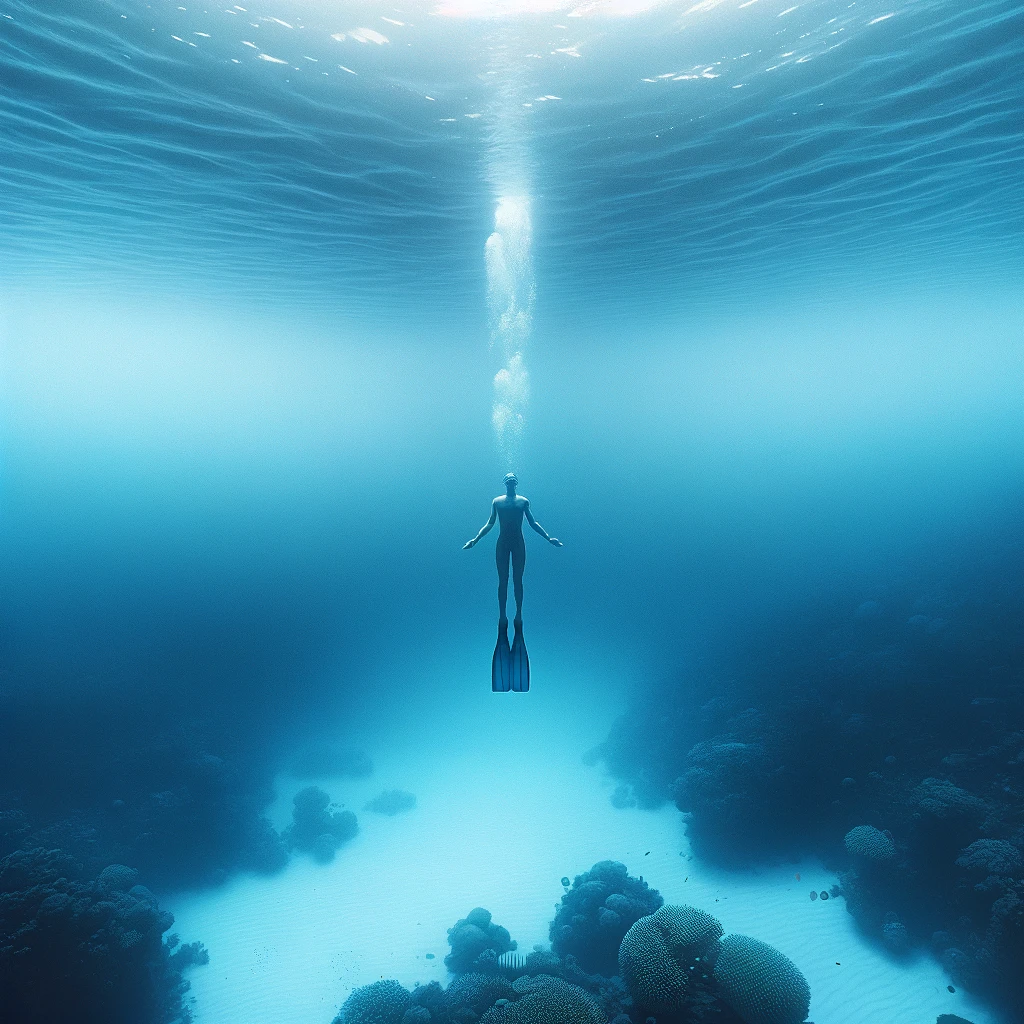
** Please do not try any of this at home **
I was sick during my visit to Cabo and could not Scuba Dive. As an alternative, I enrolled in AIDA1 Freediving training as a way to spend more time in the water, stepping into a world I knew nothing about.
I imagined Freediving to be about how to swim better. Yet, as I delved deeper with our Instructor Ben, I discovered it to be a profound practice in relaxation, and a whole bunch of science about our physiological responses.
Freediving, at its core, isn't solely about mastering swimming techniques or pushing your limits in the ocean's depths. It's an art of relaxation, a method to teach your body to optimize oxygen usage.
Relaxation is such a common term. In practice, it means to clear the head, relax all muscles, and hence slow down heart rate - a mental strength that affects the physical body. Lung capacity matters, of course, but relaxation is the art of Freediving, the technique of the sport.
One of the most intriguing lessons from my training was debunking a common myth about our urge to breathe. You may have experienced this as a kid: after holding your breath for a while, there is an overwhelming urge to gasp for air, so strong that your chest starts to spasm.
Contrary to popular belief, the spasms and the overwhelming urge to gasp for air are not purely triggered by a lack of oxygen. Instead, they stem from an increase in carbon dioxide levels in the body.
While still dangerous if not properly managed, this understanding shifts the focus from a fear of immediate oxygen deprivation to managing the body's reaction to CO2 buildup. With practice, one can learn to coexist with these spasms, extending the time spent underwater. Isn't that crazy?
This Freediving training turned out to be more than just a dive - it ties breathing, meditation, science, and sports together. It made me think about what other aspects of life did I incorrectly assume were due to a lack of oxygen, when in fact they're caused by an accumulation of CO2?
I’m also surprised to find out that with little practice and guidance, I can hold my breath underwater for 3 minutes and 46 seconds, way beyond my imagination. The spasms towards the end of the apnea (breath holding) made me want to get the hell out of there more than anything in the world, but Ben reminded me that it’s just CO2, and I could have broken into 4 minutes.
The dive shop is Ocean Tiger in Cabos. I couldn’t recommend Ben & his training enough.